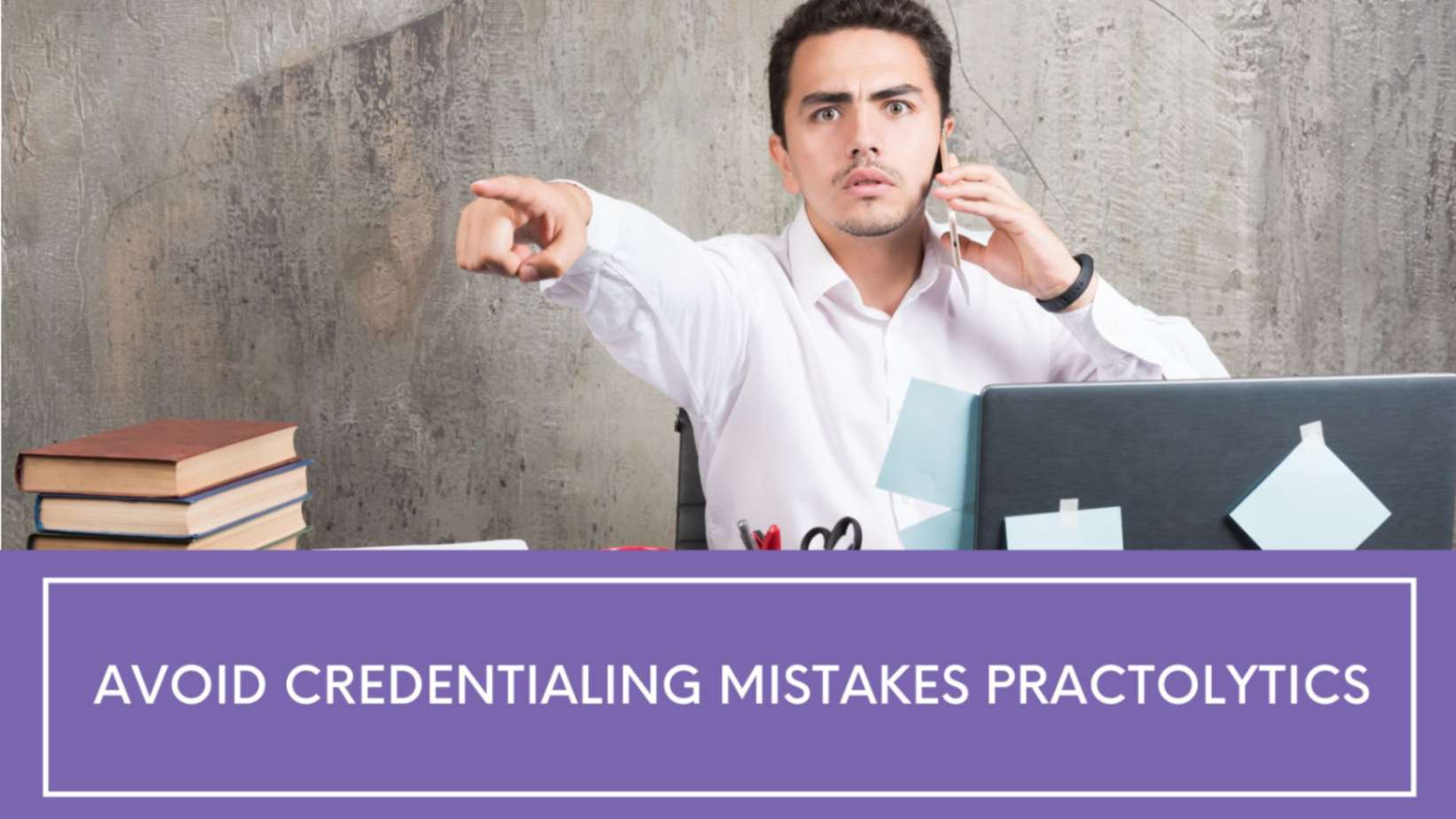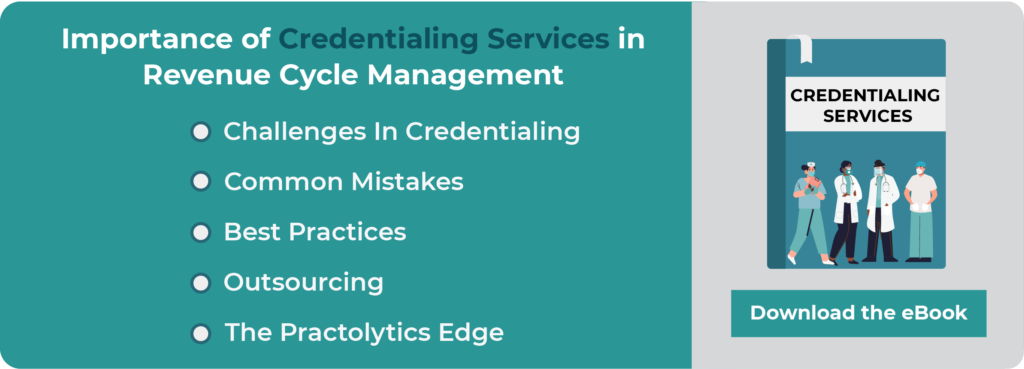How Credentialing Mistakes Affect Revenue and How to Avoid them with Practolytics?
Reimbursements and payments by different payers depend on all parties involved, such as the patient, the practice, and the payer, meeting a certain set of requirements. These are clearly indicated in the contract. One such requirement is credentialing of the doctor, which should be done by your practice or a healthcare organization that the physician is working at.
While the specific requirement of credentialing seems easy in theory, it is much harder to do in real life. So much so that errors in credentialing process cost the healthcare industry a billion dollars, annually. To avoid your practice’s funds ending up in that number, you should look into the credentialing process at your practice and even consider outsourcing it.
Table of Contents
What is Credentialing?
Credentialing is the validation and verification that a physician’s education, training, and diploma are legitimate. The main aim of the process is to create a bridge between healthcare and local laws, making sure that all practices and healthcare institutes are following the law while practicing medicine. Credentialing allows a payer to know the legitimacy of the physician, hence, ensuring proper patient care and reimbursement.
The benefits of credentialing aren’t solely for the physician or the payer, but also for patients as it makes sure the doctor knows what they are doing. This way, patients are guaranteed to receive the best healthcare provided by certified, well-trained professionals.
Credentialing mistakes and revenue
Based on its description, credentialing is often mistaken to be an easy task that won’t prove to be a major setback if done wrong. That couldn’t be much further from the truth. Credentialing mistakes or lack of credentialing directly means that your practice won’t be verified by the payer, hence, cutting off reimbursements completely. Lack of reimbursements is even more costly when the service has already been provided by your practice. That is a huge hit to your revenue cycle, that could be detrimental to the overall health of your practice.
Credentialing mistakes also affect revenue by affecting patient retention. If your practice can’t verify the backgrounds and medical degrees of the physicians, then the patients are less likely to trust these physicians. They are more likely to either not follow through with their appointment or never return to the practice, both of which will eventually end up hurting your practice.
4 common credentialing mistakes your practice may be making
Credentialing mistakes affect all practices but as long as you are willing to get on top of them and find a solution that works, you are already one step closer to success than the others. You have to look out for these mistakes below, as they are the big mistakes most practices make. These exact mistakes don’t need to be present. The mistakes at your practice may be a different variation of these, however, they are still potential problem-makers that need to be resolved.
Hurrying off credentialing process
Much like everything else in medicine, timing is key for the credentialing process. Although the exact time frame is bound to change from provider to provider, generally, credentialing takes three months to four months to process completely. This is understandable as there is a huge set of data that needs to be processed and verified. Your practice needs to give the payers enough time to complete the process, prior to services being rendered.
CAQH lapse
CAQH or Council for Affordable Quality Healthcare Inc. is a non-profit run out of California that acts as an online repository for all credentialing data put up by physicians. Insurance providers access this data through CAQH which is why it is crucial to keep the data up to date. Your staff should be taking the time to re-attest the profiles in a timely manner to avoid losing data.
Inaccurate information
Credentialing denials can arise from inaccurate information in the form of inaccurate documentation, mistakes in trivial details such as the email address of the physician, and even, missing data. These can be harmful to the verification process as not all accurate information is present for the legitimacy of the physician to be assessed. This will hinder the credentialing process, during which a physician cannot render any services, and cannot be reimbursed for services rendered.
No follow-up by your administrative staff
Payers are receiving multiple requests for verification from different practices and healthcare institutes. Each request is accompanied by a ton of paperwork and data that needs to be thoroughly processed. It wouldn’t be surprising if your application is lost among this data and if your staff isn’t following up on it, then no one would be the wiser about the status of your application.
How can Practolytics help?
The major problems with credentialing processes arise from a lack of time to perform the tasks properly or mistakes made by staff. It is human to err and your staff cannot be made responsible to spend an exuberant number of manhours filling in details without the proper training, and your staff can be expensive. With Practolytics, the credentialing process is streamlined completely to not only overcome the most common problems, but also any other related variations that you commonly encounter.
The team at Practolytics is well-versed in handling the credentialing process, ensuring there is no added cost or need for time than usually required. Moreover, the team is trained to keep in mind different rules and regulations put forward by different providers, hence, ensuring credentialing isn’t denied because of the right regulations, wrong payer situation. Not just that, Practolytics automates the renewal of data so there aren’t any CAQH lapses. And the best part is that Practolytics manages all credentialing tasks in a timely manner, hence solving the biggest issue with the process.
Practolytics provides credentialing solutions that improve the big RCM picture of your practice by increasing profits and patient retention. Moreover, with Practolytics taking over this tedious process, you and your staff can focus solely on patient care, to further improve patient retention.
Just because Practolytics is taking over the credentialing process does not mean that you lose autonomy over this process. You will still be kept updated with a bi-weekly credentialing progress report along with reference numbers for all the applications. You can perform quality control checks and track the efficiency of Practolytics anytime with these regular reports.
ALSO READ – Best Medical Practice Management Software
Talk to Medical Billing Expert Today — Get a Free Demo Now!






